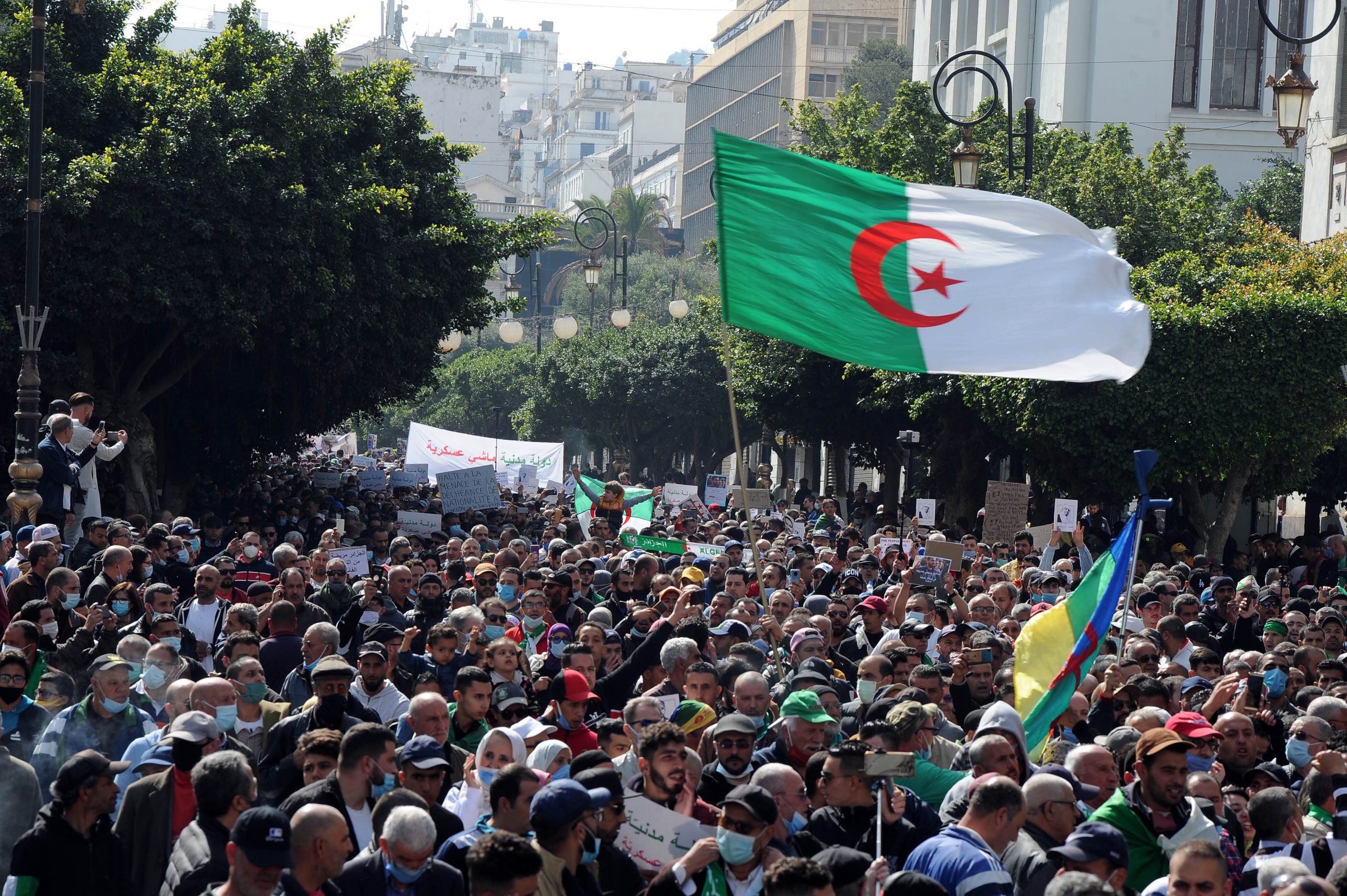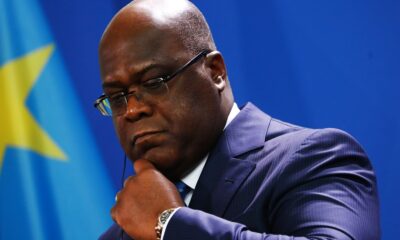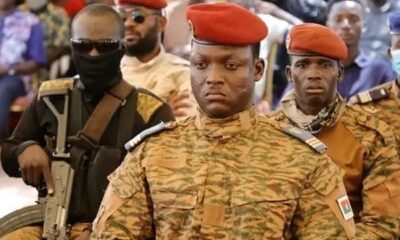Strictly Personal
Why the UNSG Report is a Major Diplomatic Setback for Algeria by Samir Bennis
Published
2 years agoon

UN Secretary-General (UNSG) Antonio Guterres’ latest report on the situation in Western Sahara may not readily come across as a knockout blow to Polisario’s statehood aspirations in Western Sahara, owing to its usual diplomatic knack for not overtly offending any of the conflicting parties and its few evocations of a “self-determination referendum” every time it quoted the demands of the Polisario leadership.
When looked at the document more closely, however, both the language adopted, and the recommendations laid out in this annual report on the region constitute a major setback for the Algerian-backed Polisario Front.
Although the document does not explicitly support Morocco’s 2007 autonomy initiative, many of its points echoed the avenues the Moroccan plan previously laid out as the best way out of the decades-long political and diplomatic dispute in the Western Sahara region.
A Rebuke to Algeria
In previous reports Guterres shielded himself from quasi-openly singling out Algeria for its primary responsibility in the creation and the prolongation of the conflict and the stalemate of the political process. The new report however, has introduced language suggesting that the UN chief is no longer mincing his words about Algeria’s status as a full-fledged party to the dispute.
The first noteworthy change signifying that winds are blowing against Algeria is the use of the term “all concerned” as opposed to the “parties” which was the term usually used in previous reports. The use of the term “parties” in previous reports was open to different interpretations and was used by Algeria to shirk its responsibility and continue claiming that it is only an observer to the conflict.
The use of the new language, however, carries a strong political connotation in the sense that the UN admits that all parties, including Algeria and Mauritania, are concerned with the dispute and should participate fully in the political process.
Additionally, there is the use of the phrase “good faith” when referring to the political process. While previous reports from the UNSG stressed that the parties show political will to achieve a just, lasting and mutually acceptable political solution, the new report emphasizes that achieving that goal requires “good faith” from all concerned parties. This is a tacit, yet clear, reference to the bad faith that Algeria and the Polisario have shown since the beginning of the political process in 2007.
The report thoroughly shatters Algeria’s claims in paragraph 92, where the UN chief calls on the country, and the separatist front it supports, to let go of their obstructive approach to the dispute.
“To that end, I urge all concerned to approach the facilitation of the process by my Personal Envoy with an open mind, and to desist from preconditions for the political process,” the UN chief says. “In guiding present and future approaches, due consideration should be given to the precedents set by my previous Personal Envoys in the framework of existing Security Council resolutions.”
The paragraph stands out as a clear message to Algeria and Polisario urging them to do away with their obstruction stubbornness and to desist from clinging to an obsolete approach that was once contemplated by the United Nations.
To put it bluntly, Guterres has sent a subtly clear message that a referendum of self-determination with the option of independence is off the table and that they can no longer claim that the Security Council resolution 690 of 1991 should be the basis on which the parties should build their negotiations.
The UNSG calls for giving consideration to the changes and precedents set by his previous personal envoys, which is reflected in the language used by the Security Council since the outset of the political process in 2007. Guterres implies that the resolutions adopted during the tenure of his previous Personal Envoys are the only guiding principle for achieving a mutually acceptable political solution.
The new language introduced by Guterres conveys a direct rebuke to Algeria who, following the adoption of Resolution 2602 in October 2021, published a communique in which it rejected the approach taken by the Security Council.
Algeria called on the Personal Envoy to “strictly inscribe” his mandate in the implementation of Resolution 690 on the settlement plan accepted by the “two parties to the conflict.” The Algerian position clearly deviated from the parameters of the political process, which helped clarify that the provisions of Resolution 690 were no longer the best guiding principle for the parties to settle the dispute.
The self-determination referendum off the table
The introduction of this new language clearly indicates that the UN has once and for all closed the chapter for a referendum on self-determination. Some observers who still read the conflict through the lenses of the 80s and 90s might argue that there is nothing in the text suggesting that the UN is repudiating that option.
The first indicator against that claim comes at the end of paragraph 91, where Guterres cites the resolutions that the political solution must be built on, notably mentioning the ones adopted since 2018. “Strong political will is required to find a just, lasting and mutually acceptable political solution that will provide for the self-determination of the people of Western Sahara in accordance with resolutions 2440(2018), 2468 (2019), 2494 (2019), 2548 (2020) and 2602 (2021),” Guterres says in the report.
This paragraph confirms that the resolutions adopted since 2018 are the only legal and political framework within which the parties should strive to achieve a mutually acceptable political solution. More importantly, what gives credence to the new approach is that Resolution 690, which established MINURSO, and all the other resolutions that followed until 1997 were adopted in the absence of a Personal Envoy tasked with bridging the gap between the parties.
The first Personal Envoy was James Baker in 1997, who during his first three years strove to get Morocco and the Polisario to agree on criteria that would pave the way for the holding of a self-determination referendum. Because of the parties’ different interpretation of the settlement provisions and their disagreement on voter eligibility however, the UN had to come to terms with the idea that holding the referendum was an unattainable goal.
In February 2000, the late UN Secretary-General Kofi Annan emphasized the lack of means to enforce the result of a referendum, saying “it was time to consider” other ways. Consequently, he asked Baker to “explore ways and means to achieve an early, lasting and agreed resolution.”
Ever since, the dispute has undergone a few shifts and changes and the idea of an autonomy plan as a way to resolve the conflict was floated by Baker for the first time in 2001. While Morocco accepted that proposal, Algeria and Polisario refused it. In 2003, he submitted another proposal, which included an autonomy plan, but also contemplated the holding of a referendum after five years within its implementation. Morocco refused the 2003 proposal while Algeria and the Polisario accepted it.
Following Baker’s resignation in 2004, the Security Council asked the parties to submit proposals to reach a political solution. In the years that followed, the Security Council has moved to regard an agreed and mutually acceptable solution as the only way forward.
Shifts towards a negotiated settlement
This dynamic in favor of a negotiated settlement and the abandonment of a self-determination referendum gained a new momentum when Morocco submitted its autonomy proposal in 2007. The first step that the Security Council took in this direction was resolution 1754 in April 2007, whose adoption was a watershed moment in the history of the conflict’s peace process.
For the first time, the Security Council, called on parties to strive towards finding a just, lasting, and mutually acceptable political solution to the conflict. While it maintained that such a solution would “provide for the self-determination of the people of Western Sahara,” it eliminated the term “referendum.”
This was the first sign that the Security Council regarded a referendum leading to the establishment of an independent state in southern Morocco as an unviable solution that the kingdom could never accept.
Another sign pointing to the abandonment of that option was the fact that Resolution 1754 took note of the Moroccan autonomy plan, stating that it welcomed “serious and credible Moroccan efforts to move the process forward towards resolution.” What was especially significant about that resolution’s wording, pointing to a shift in the Security Council’s approach to the conflict, was the fact that while it “welcomed” Morocco’s efforts it only “took note of” Polisario’s counterproposal.
Resolution 1754 echoes the findings of then Personal Envoy Peter Van Walsum. In an interview to El Pais in 2008, he said that the establishment of an independent state in southern Morocco was not realistic. Walsum doubled down in an op-ed published in the same newspaper where he explained that there was widespread consensus within the Security Council about the need to push for a mutually acceptable political solution.
The newly found momentum in favor of a political peace process based on Morocco’s autonomy proposal was dampened following the election of Ban Ki-Moon as Secretary General in 2007 and his subsequent appointment of Christopher Ross as his Personal Envoy. Ross seemed less willing than his predecessor to push Algeria and the Polisario to embrace the new direction taken by the Security Council with the adoption of Resolution 1754.
This enabled both of them to stall the political process by taking the focus away from the political process and focusing instead on human rights in the territory. Despite these attempts, and though no progress was achieved between 2009 and 2017, the Security Council maintained the same emphasis on the need for the parties to achieve a mutually acceptable political solution, with the option of a self-determination referendum being completely off the table.
Renewed momentum under Guterres
The election of Guterres in 2018 and the appointment of Horst Kohler as his Personal Envoy breathed new life into the process and refocused the discussion on the need for a mutually acceptable political solution.
Since the adoption of Resolution 2440 in 2018, the Security Council put more emphasis on the need for all parties, including Algeria and Mauritania in addition to Morocco and the Polisario, to be guided by a spirit of compromise and realism, while stressing the need to “achieve a realistic, practicable and enduring political solution based on compromise.” The resolutions also regard Algeria as a main party to the conflict, stressing the pivotal role that it should play in the political process.
Against this backdrop, it becomes clear that the new language in the UNSG report is a stark rebuke to Algeria and the Polisario. It also renews the call for them to forgo the pipe dream of establishing an independent state in southern Morocco and to approach the political process with good faith.
Samir Bennis is the co-founder of Morocco World News. You can follow him on Twitter @SamirBennis.
You may like
-


Air Peace, capitalism and national interest, By Dakuku Peterside
-


This is chaos, not governance, and we must stop it, By Tee Ngugi
-


Off we go again with public shows, humbug and clowning, By Jenerali Uliwengu
-


How patriarchy underpins gender violence today, By Tee Ngugi
-


Help! There’s a dangerous, secret plot to save the EAC from imminent death, By Charles Onyango-Obbo
-


How South Africa, US elections could shape Tshisekedi’s bread in Kinshasa, By Charles Onyango-Obbo
Strictly Personal
Air Peace, capitalism and national interest, By Dakuku Peterside
Published
3 days agoon
April 16, 2024
Nigerian corporate influence and that of the West continue to collide. The rationale is straightforward: whereas corporate activity in Europe and America is part of their larger local and foreign policy engagement, privately owned enterprises in Nigeria or commercial interests are not part of Nigeria’s foreign policy ecosystem, neither is there a strong culture of government support for privately owned enterprises’ expansion locally and internationally.
The relationship between Nigerian businesses and foreign policy is important to the national interest. When backing domestic Nigerian companies to compete on a worldwide scale, the government should see it as a lever to drive foreign policy, and national strategic interest, promote trade, enhance national security considerations, and minimize distortion in the domestic market as the foreign airlines were doing, boost GDP, create employment opportunities, and optimize corporate returns for the firms.
Admitted nations do not always interfere directly in their companies’ business and commercial dealings, and there are always exceptions. I can cite two areas of exception: military sales by companies because of their strategic implications and are, therefore, part of foreign and diplomatic policy and processes. The second is where the products or routes of a company have implications for foreign policy. Air Peace falls into the second category in the Lagos – London route.
Two events demonstrate an emerging trend that, if not checked, will disincentivize Nigerian firms from competing in the global marketplace. There are other notable examples, but I am using these two examples because they are very recent and ongoing, and they are typological representations of the need for Nigerian government backing and support for local companies that are playing in a very competitive international market dominated by big foreign companies whose governments are using all forms of foreign policies and diplomacy to support and sustain.
The first is Air Peace. It is the only Nigerian-owned aviation company playing globally and checkmating the dominance of foreign airlines. The most recent advance is the commencement of flights on the Lagos – London route. In Nigeria, foreign airlines are well-established and accustomed to a lack of rivalry, yet a free-market economy depends on the existence of competition. Nigeria has significantly larger airline profits per passenger than other comparable African nations. Insufficient competition has resulted in high ticket costs and poor service quality. It is precisely this jinx that Air Peace is attempting to break.
On March 30, 2024, Air Peace reciprocated the lopsided Bilateral Air Service Agreement, BASA, between Nigeria and the United Kingdom when the local airline began direct flight operations from Lagos to Gatwick Airport in London. This elicited several reactions from foreign airlines backed by their various sovereigns because of their strategic interest. A critical response is the commencement of a price war. Before the Air Peace entry, the price of international flight tickets on the Lagos-London route had soared to as much as N3.5 million for the economy ticket. However, after Air Peace introduced a return economy class ticket priced at N1.2 million, foreign carriers like British Airways, Virgin Atlantic, and Qatar Airways reduced their fares significantly to remain competitive.
In a price war, there is little the government can do. In an open-market competitive situation such as this, our government must not act in a manner that suggests it is antagonistic to foreign players and competitors. There must be an appearance of a level playing field. However, government owes Air Peace protection against foreign competitors backed by their home governments. This is in the overall interest of the Nigerian consumer of goods and services. Competition history in the airspace works where the Consumer Protection Authority in the host country is active. This is almost absent in Nigeria and it is a reason why foreign airlines have been arbitrary in pricing their tickets. Nigerian consumers are often at the mercy of these foreign firms who lack any vista of patriotism and are more inclined to protect the national interest of their governments and countries.
It would not be too much to expect Nigerian companies playing globally to benefit from the protection of the Nigerian government to limit influence peddling by foreign-owned companies. The success of Air Peace should enable a more competitive and sustainable market, allowing domestic players to grow their network and propel Nigeria to the forefront of international aviation.
The second is Proforce, a Nigerian-owned military hardware manufacturing firm active in Rwanda, Chad, Mali, Ghana, Niger, Burkina Faso, and South Sudan. Despite the growing capacity of Proforce in military hardware manufacturing, Nigeria entered two lopsided arrangements with two UAE firms to supply military equipment worth billions of dollars , respectively. Both deals are backed by the UAE government but executed by UAE firms.
These deals on a more extensive web are not unconnected with UAE’s national strategic interest. In pursuit of its strategic national interest, India is pushing Indian firms to supply military equipment to Nigeria. The Nigerian defence equipment market has seen weaker indigenous competitors driven out due to the combination of local manufacturers’ lack of competitive capacity and government patronage of Asian, European, and US firms in the defence equipment manufacturing sector. This is a misnomer and needs to be corrected.
Not only should our government be the primary customer of this firm if its products meet international standards, but it should also support and protect it from the harsh competitive realities of a challenging but strategic market directly linked to our national military procurement ecosystem. The ability to produce military hardware locally is significant to our defence strategy.
This firm and similar companies playing in this strategic defence area must be considered strategic and have a considerable place in Nigeria’s foreign policy calculations. Protecting Nigeria’s interests is the primary reason for our engagement in global diplomacy. The government must deliberately balance national interest with capacity and competence in military hardware purchases. It will not be too much to ask these foreign firms to partner with local companies so we can embed the technology transfer advantages.
Our government must create an environment that enables our local companies to compete globally and ply their trades in various countries. It should be part of the government’s overall economic, strategic growth agenda to identify areas or sectors in which Nigerian companies have a competitive advantage, especially in the sub-region and across Africa and support the companies in these sectors to advance and grow to dominate in the African region with a view to competing globally. Government support in the form of incentives such as competitive grants ,tax credit for consumers ,low-interest capital, patronage, G2G business, operational support, and diplomatic lobbying, amongst others, will alter the competitive landscape. Governments and key government agencies in the west retain the services of lobbying firms in pursuit of its strategic interest.
Nigerian firms’ competitiveness on a global scale can only be enhanced by the support of the Nigerian government. Foreign policy interests should be a key driver of Nigerian trade agreements. How does the Nigerian government support private companies to grow and compete globally? Is it intentionally mapping out growth areas and creating opportunities for Nigerian firms to maximize their potential? Is the government at the domestic level removing bottlenecks and impediments to private company growth, allowing a level playing field for these companies to compete with international companies?
Why is the government patronising foreign firms against local firms if their products are of similar value? Why are Nigerian consumers left to the hands of international companies in some sectors without the government actively supporting the growth of local firms to compete in those sectors? These questions merit honest answers. Nigerian national interest must be the driving factor for our foreign policies, which must cover the private sector, just as is the case with most developed countries. The new global capitalism is not a product of accident or chance; the government has choreographed and shaped it by using foreign policies to support and protect local firms competing globally. Nigeria must learn to do the same to build a strong economy with more jobs.
Strictly Personal
This is chaos, not governance, and we must stop it, By Tee Ngugi
Published
1 week agoon
April 10, 2024
The following are stories that have dominated mainstream media in recent times. Fake fertiliser and attempts by powerful politicians to kill the story. A nation of bribes, government ministries and corporations where the vice is so routine that it has the semblance of policy. Irregular spending of billions in Nairobi County.
Billions are spent in all countries on domestic and foreign travel. Grabbing of land belonging to state corporations, was a scam reminiscent of the Kanu era when even public toilets would be grabbed. Crisis in the health and education sectors.
Tribalism in hiring for state jobs. Return of construction in riparian lands and natural waterways. Relocation of major businesses because of high cost of power and heavy taxation. A tax regime that is so punitive, it squeezes life out of small businesses. Etc, ad nauseam.
To be fair, these stories of thievery, mismanagement, negligence, incompetence and greed have been present in all administrations since independence.
However, instead of the cynically-named “mama mboga” government reversing this gradual slide towards state failure, it is fuelling it.
Alternately, it’s campaigning for 2027 or gallivanting all over the world, evoking the legend of Emperor Nero playing the violin as Rome burned.
A government is run based on strict adherence to policies and laws. It appoints the most competent personnel, irrespective of tribe, to run efficient departments which have clear-cut goals.
It aligns education to its national vision. Its strategies to achieve food security should be driven by the best brains and guided by innovative policies. It enacts policies that attract investment and incentivize building of businesses. It treats any kind of thievery or negligence as sabotage.
Government is not a political party. Government officials should have nothing to do with political party matters. They should be so engaged in their government duties that they literally would not have time for party issues. Government jobs should not be used to reward girlfriends and cronies.
Government is exhausting work undertaken because of a passion to transform lives, not for the trappings of power. Government is not endless campaigning to win the next election. To his credit, Mwai Kibaki left party matters alone until he had to run for re-election.
We have corrupted the meaning of government. We have parliamentarians beholden to their tribes, not to ideas.
We have incompetent and corrupt judges. We have a civil service where you bribe to be served. Police take bribes to allow death traps on our roads. We have urban planners who plan nothing except how to line their pockets. We have regulatory agencies that regulate nothing, including the intake of their fat stomachs.
We have advisers who advise on which tenders should go to whom. There is no central organising ethos at the heart of government. There is no sense of national purpose. We have flurries of national activities, policies, legislation, appointments which don’t lead to meaningful growth. We just run on the same spot.
Tee Ngugi is a Nairobi-based political commentator
EDITOR’S PICK


‘Reconsider your anti-people policies, they are causing hardship, insecurity in Nigeria’— PDP tells Tinubu
Nigeria’s main opposition party, the Peoples Democratic Party (PDP), has called on President Bola Tinubu to consider what it calls...


Top European, Asian clubs on alert as Super Eagles keeper set to make contract decision
Some top clubs in Europe and Asia have been put on alert as Super Eagles and Chippa United goalkeeper, Stanley...


IMF says South Africa needs to do more to cut spending, lower debt-to-GDP ratio
A top official from the International Monetary Fund has revealed that South Africa needs to do more to cut spending...


Burkina Faso expels 3 French diplomats over ‘subversive activities’
According to a letter quoted by Reuters on Thursday, three French diplomats have been sent back to France by Burkina...


Nigeria’s MAX partners Ghana’s Kofa in e-bike financing deal
Nigeria’s electric vehicle solutions provider, MAX, has announced striking a partnership deal with Ghana’s innovator in energy networks, Kofa, that...


Zambia asks EU to help strengthen its democratic initiatives ahead of 2026 elections
The Zambian government has called on the European Union (EU) to help in strengthening democratic initiatives in the country as...


Nigeria destined to become major global economy under Tinubu— VP Shettima
Nigeria’s Vice President, Kashim Shettima, has predicted that the country is destined to become a major economic force in the...


Nigeria’s central bank insists depleting external reserves not due to Naira defence
According to the Central Bank of Nigeria (CBN), the big drop in the country’s foreign exchange reserves was not due...


African Guarantee Fund partners Nordic Development Fund to launch green finance in Nigeria
The African Guarantee Fund (AGF) has teamed up with the Nordic Development Fund (NDF) to launch a green finance fund...


Ethiopia’s Lemma, Kenya’s Obiri give Africa double podium finish at Boston Marathon
Ethiopia’s long distance runner, Sisay Lemma, and Kenyan female marathon sensation, Hellen Obiri, teamed up to give Africa a double...
Trending
-

 Tech1 day ago
Tech1 day agoNigeria’s MAX partners Ghana’s Kofa in e-bike financing deal
-

 Metro1 day ago
Metro1 day agoNigeria destined to become major global economy under Tinubu— VP Shettima
-

 Sports1 day ago
Sports1 day agoTop European, Asian clubs on alert as Super Eagles keeper set to make contract decision
-

 VenturesNow1 day ago
VenturesNow1 day agoNigeria’s central bank insists depleting external reserves not due to Naira defence


